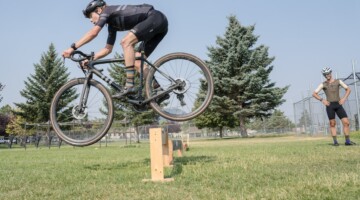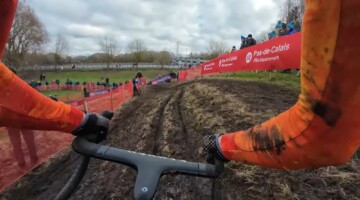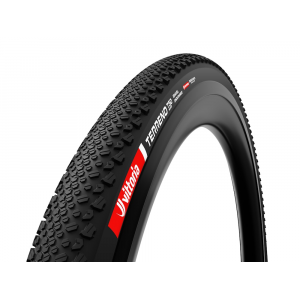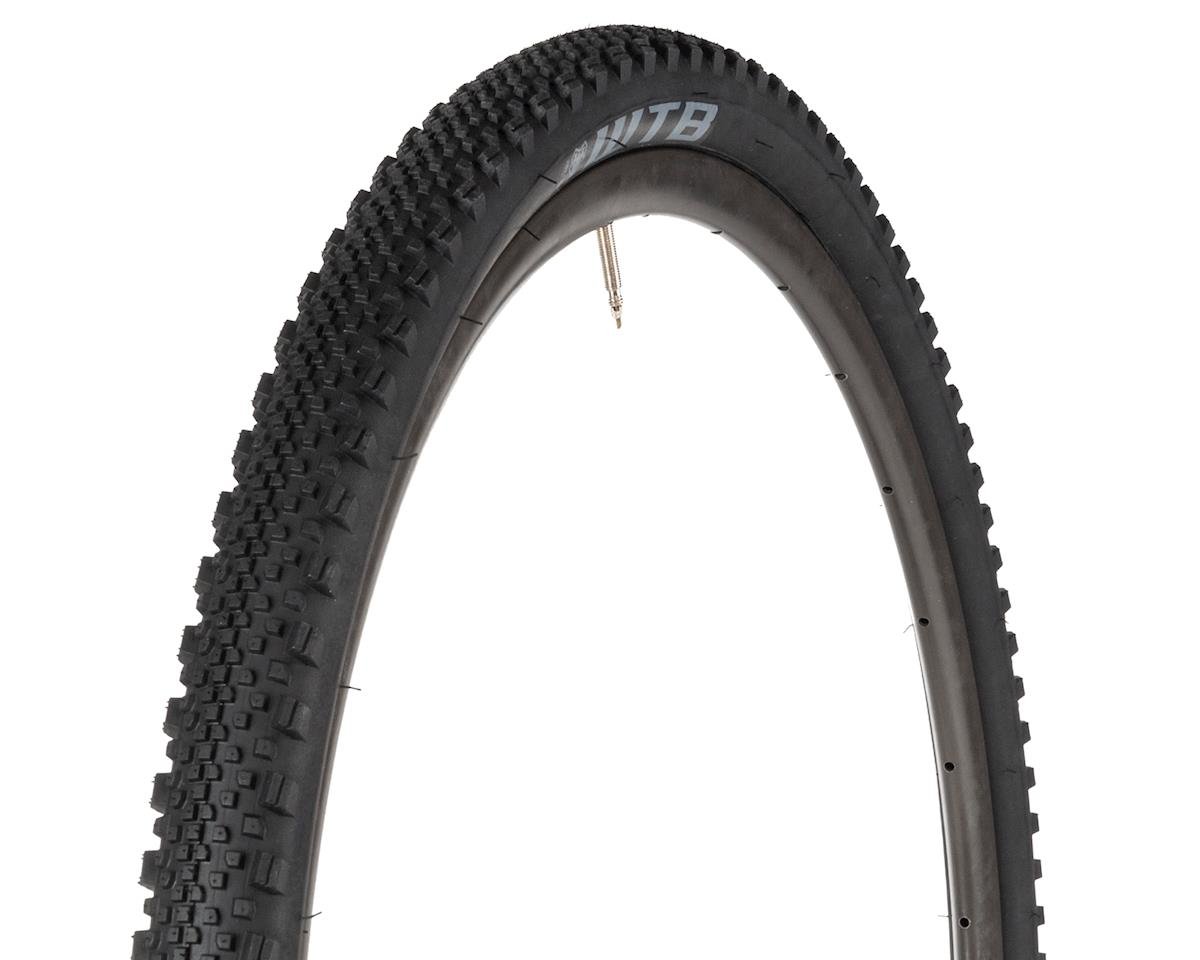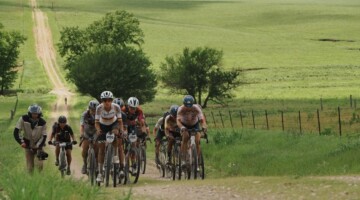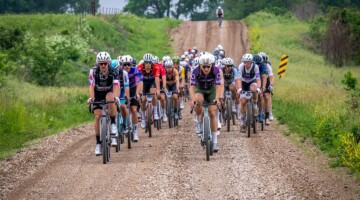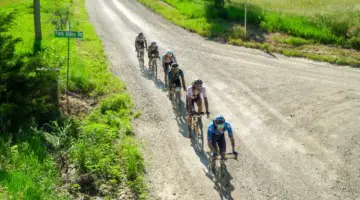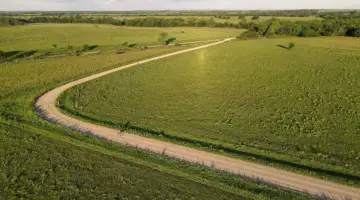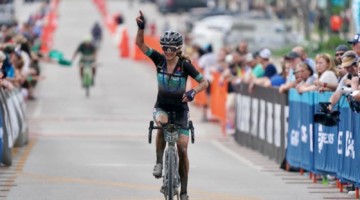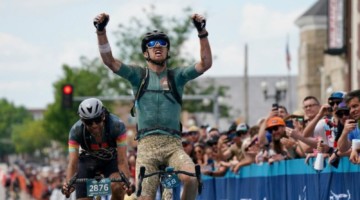by Neil Schirmer
From humble beginnings, as with many gravel events, the SugarCane 200 started as an idea for a fun and challenging ride with friends. The 2020 edition was only the second iteration, but intrepid promoter Bertrand Lamour managed to attract quite a few heavy hitters for something that even Lamour himself characterizes as an “easy Dirty Kanza” to give riders an opportunity to get some long miles in their legs in a warm climate in January.
Lamour went to Dirty Kanza in 2015 and was immediately hooked on gravel. He took the stoke back to Florida and parlayed that energy into his own event. The inaugural event in 2019 was a casual and grassroots affair, something that Lamour describes as “a Strava ride” with sponsors. Unfortunately, that year was plagued with terrible weather. Out of 40 riders who registered, only 14 showed up to the start line. Of that bunch, only nine made it to the mid-race checkpoint. James Wilson was the single rider to cross the finish line that day in just over 16 hours.
Fast forward to 2020 – Lamour invited gravel luminaries such as previous Dirty Kanza winners Amanda Nauman and Ted King, and mountain bike legend cum gravel racer Jeremiah Bishop who all attended this year’s race. “I really enjoyed riding terrain completely new to me,” cited King. “To ride something that’s so pancake flat as central Florida means you’re always pedaling, which is a fun change of pace”
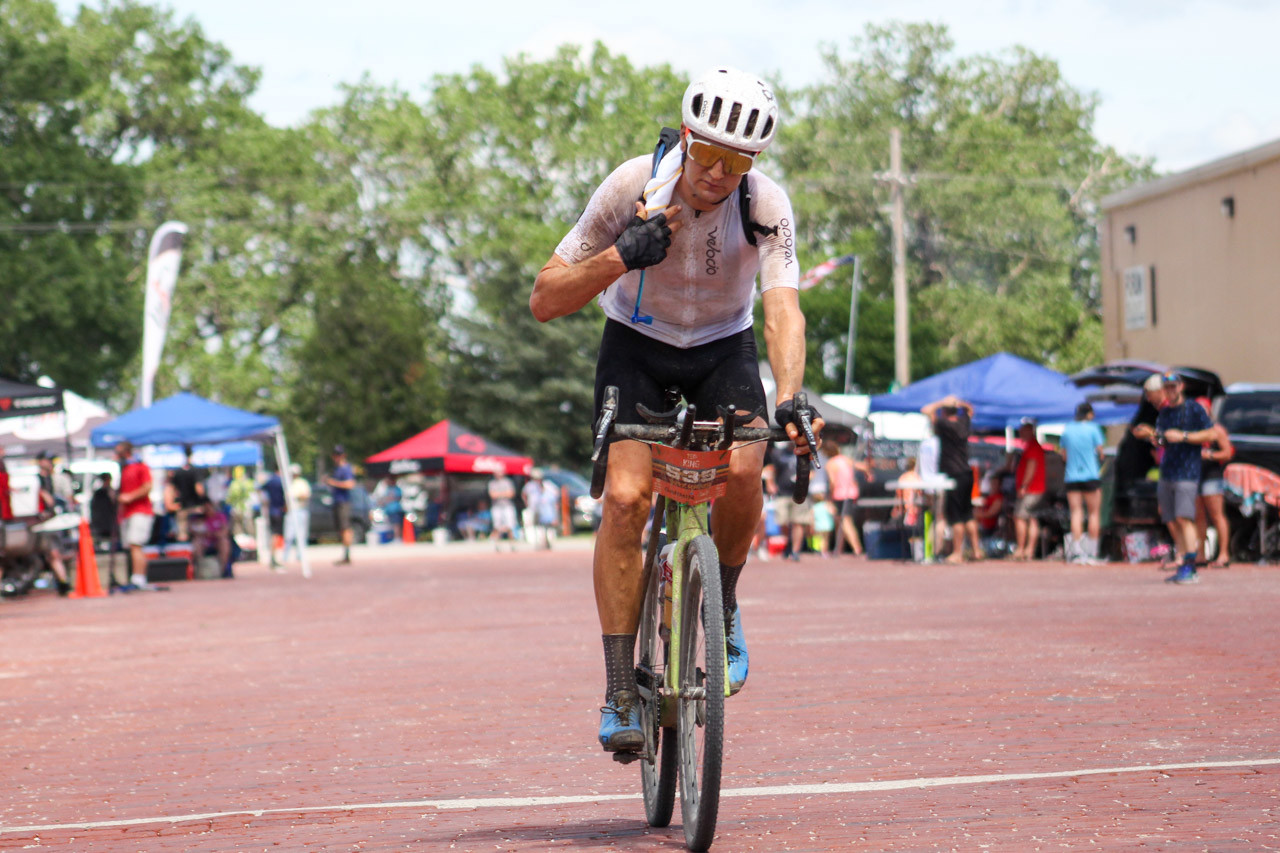
2018 Men’s Dirty Kanza 200 winner Ted King made the trip to Florida to take in the SugarCane 200. photo: 2018 DK200 © Z. Schuster / Cyclocross Magazine
King’s enthusiasm was a theme among the riders in attendance, echoed by Amanda Nauman who enjoyed “meeting new people and seeing the scene in a completely opposite part of the country.”
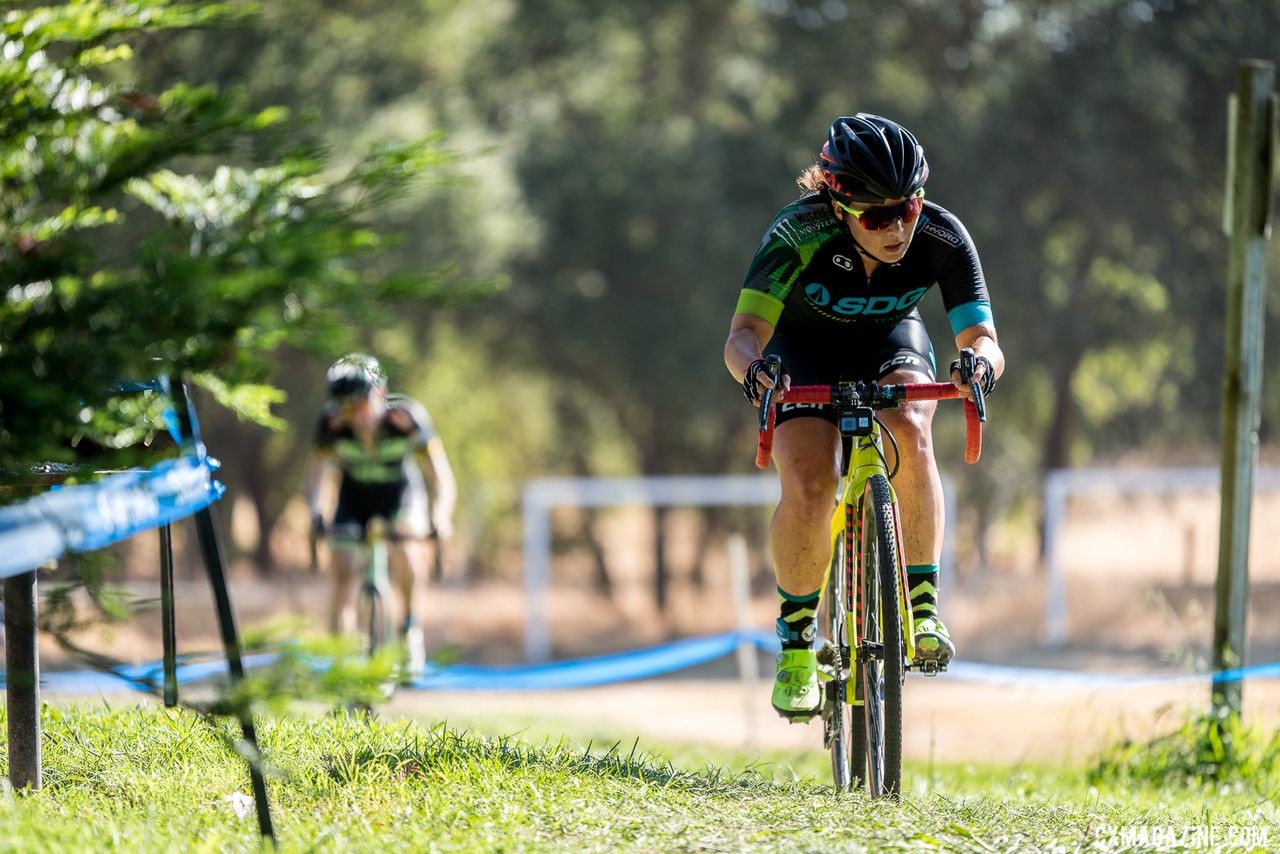
Amanda Nauman traded in her 45-minute cyclocross legs for 150-mile gravel legs for the SugarCane gravel race in Florida. photo: 2019 West Coast Points Prestige. © Jeff Vander Stucken
As with many gravel-related things these days, the Sugar Cane 200 is part of a new trend for gravel events—grassroots races that offer training opportunities for bigger events. Fortunately, the gravel ethos happens to naturally provide an environment for races such as these to develop and thrive, perhaps more so than your average bike racing event. Any amount of time perusing social media accounts of top gravel-focused riders will reveal a common desire among many to race more smaller events, which ends up serving a dual purpose—riders get to train and small races get exposure.
Like many new endeavors, the 2020 SugarCane 200 did not unfold without a little bit of drama. The race route wound riders through the Florida Everglades which is an area strictly regulated by the South Florida Water Management District. According to Nauman, the day before the event, racers “were told of an issue surrounding a few of the roads in the Water Management areas that were part of the original route. [To] avoid the problem roads, the route was changed to an out-and-back instead of a loop.”
In addition to this late-breaking re-route, some local farmers with property along other parts of the race route became agitated by the presence of the racers on race day which resulted in local law enforcement involvement. As King recounts, the support staff at the mid-way checkpoint were quick to inform the racers of the evolving situation. “Those friendly folks were quick to explain that there were some upset farmers and therefore, rather than risking riding back through that area, we would finish at mile 150. So that was plenty of time to sort things out from a racing perspective. If you’re planning for a mile 198 race-winning attack, that might have fouled you up, but no one in our group seemed to mind.” As one of the riders in the thick of affairs at the front of the race, King took things in stride, affirming “I think the right call was made.”
King was also sympathetic not only as an experienced gravel racer, but as a promoter himself. King’s Rooted Vermont has afforded him many opportunities to learn about gravel events from a promoter’s perspective. “Oh my gosh, with my race promoter hat on, I have nothing but sympathy for Bert and the SugarCane crew.”
In the end, everyone finished safely and had a really good day out on the bike, which is a testament to both racers, promoter and volunteers. Nauman summed up the day with plenty of stoke. “Truthfully, I wasn’t really bothered by all of it and was secretly happy at mile 140 when I realized that an extra 60 miles would’ve been rough. I got what I came for, which was a real grassroots event with all of the associated hiccups, and I embraced all of it.”
Who won? The promoter chose to keep full results private, perhaps to let the controversy and upset locals settle down, but Dylan Johnson and Amanda Nauman took the victories.
Considering attending next year? Here’s a fun teaser of what might be in store for you:

